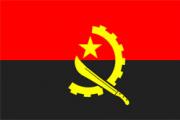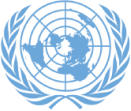SECURITY COUNCIL
OPEN DEBATE
PEACEBUILDING IN AFRICA
28 JULY 2016
Mr. President,
Distinguished Ministers
Ladies and Gentlemen,
We congratulate Japan for the manner in which it has been conducting the Security Council during its presidency for the month of July.
Angola applauds Japan's decision to convene this important meeting on the theme of Peacebuilding in Africa, translating Japan's commitment to the cooperation with the African Continent, as reflected in the series of TICAD conferences on Africa, dating back to 1993.
At the World Summit in 2005, the United Nations established the Peacebuilding Commission, the Peacebuilding Fund and the Peacebuilding Support Office. The ten year review of what we refer to as the UN Peacebuilding architecture was concluded in April this year with the concurrent adoption of identical resolutions by the UN General Assembly and the Security Council.
Ten years ago in the African Union Summit held in Banjul, Gambia, the African governments adopted a policy framework on post-conflict reconstruction and development to guide its work on support of countries emerging from conflict in Africa.
More recently, to better respond to the challenges facing African countries emerging from conflict, the African Union Commission launched, in 2012, the African Solidarity Initiative (ASI) aimed at mobilizing resources for post-conflict reconstruction and development.
I have alluded to these efforts to advance the peacebuilding agenda, both at the United Nations and at the African Union, to underline the fact that peacebuilding is being accorded the required priority in the midst of other competing issues on the international agenda.
Mr. President,
Today’s debate on peacebuilding in Africa allows members of the Security Council and UN membership an opportunity to reflect on challenges that African countries emerging from conflict face in the transition from war to peace; the priorities for peacebuilding at the national level; and the role of the UN in particular.
Security Council Resolution 2282 and General Assembly Resolution 70/262 adopted in April 2016, of which Australia and Angola were facilitators defines the prevention of conflict as the key element of peacebuilding, and includes activities running through all its phases, aimed at preventing the outbreak, escalation, persistence and recurrence of conflict, addressing the roots-causes, assisting the parties to end hostilities, ensuring national reconciliation and moving towards recovery, reconstruction and development. All elements of this definition are important as they underscore institution-building as the fundamental prerequisite for a successful peacebuilding process.
It is widely understood that the existence of effective and efficient institutions differentiate capable from fragile states. Therefore, institution-building must be accorded the highest priority in any peacebuilding effort. Countries emerging from conflict need to build institutions that help achieve individual safety, reform the security sector, revitalize their economies, provide social services, support national reconciliation and political cohesion, and establish the rule of law.
Mr. President,
In spite of the constraints imposed by a long armed conflict that lasted nearly thirty years and which caused widespread devastation, Angola has been enacting a development model embodied in a broad national reconciliation process, launched in 2002, leading to the approval of the Constitution of the Republic in 2010, that reaffirmed the rule of law and democracy, extending rights and freedoms to all citizens, and ensuring the participation of all in the democratic process.
This national resolution has enabled the Angolan Government to accomplish gains which are recognized at the sub-regional, regional and international levels.
In this regard, I would like to refer the International Conference of the Great Lakes Region that Angola currently chairs and comment on the initiatives being undertaken under the auspices of the UN Peacebuilding Commission.
Angola remains strongly committed to the central role that preventive diplomacy plays in the resolution of conflicts in the Great Lakes Region; Angola also strongly believes on the urgent need to put the Great Lakes region on the path to sustainable development, through the promotion of investments, international cooperation and support to make this huge market enjoy the peace dividend.
The Great Lakes Regional Strategic Framework, established to support the implementation of the Peace, Security and Cooperation Framework for the Democratic Republic of Congo and the Region is an important tool to achieving the above requirements, and must be supported, together with the ICGLR Regional Initiative Against the Illegal Exploitation of Natural Resources (RINR).
The Kinshasa Conference on Private Sector Investment in the Great Lakes Region, held on February 2016, brought awareness not only on what the investment opportunities offered by the regions but also what the region needs to do and to improve the business environment. These include implementing wide-reaching social reforms, transparent processes encouraging business incentives and anti-corruption programmes.
Mr. President,
In search of peaceful solutions to political crises and conflicts in the Great Lakes Region, Angola promoted:
- The launch of the “Guarantor of Peace, Cooperation and Security Mechanism,” led by the UN, with the participation of the ICGLR and SADC.
- The Conference on Private Investment in the Great Lakes Region, in Kinshasa, DRC.
- The decision urging the South Sudanese leaders and people to put differences aside and work for the implementation of the peace agreement in South Sudan.
Concerning the Democratic Republic of Congo (DRC), the ICGLR reiterated the need to put an end to the negative forces, and to complete preparation for the presidential and legislative elections in a peaceful, credible, inclusive and transparent manner, in accordance with the Constitution of the country.
Regarding Burundi, the ICGLR reiterated the call for an inclusive and transparent dialogue, to discuss all issues that pose a threat to the integrity, security and peace in that country.
Mr. President,
We recognize the important work the United Nations Peacebuilding Commission in the consolidation of peace in several African Countries. The PBC played a crucial role in the fight against the Ebola outbreak in Guinea, Liberia, and Sierra Leone and is promoting post-Ebola recovery in collaboration with the Economic Community of West African States (ECOWAS) and other international, regional, bilateral and multilateral partners.
We would like to underline the importance of financing for peacebuilding. In countries emerging from conflict, financial support is critical to achieve many of the lofty and laudable goals associated with peacebuilding. The most carefully crafted and best design peacebuilding programme will fail if the financial resources to implement its various components are not provided, and in a timely basis.
Political consensus among national stakeholders and the commitment of governments are essential ingredients for peacebuilding. However, financial unless financial resources are provided to implement priority programs on which political consensus and commitment exists, peacebuilding efforts can easily derail.
Mr. President,
I would like to add a cautionary note to this Council. Peacebuilding is a complex process encompassing many priorities and involving many stakeholders. More importantly, the hierarchy of priorities varies from country to country.
Elections, while being a decisive moment for a nation emerging from conflict and for the consolidation of democratic institutions are not, by themselves, the solution for consolidating peace in a post-conflict country, since weak institutions and economic stagnation go hand in hand with relapse into conflict.
Furthermore, unless institutional capacity building and economic recovery are dealt with first, a relapse into conflict is a most probable outcome, in particular when the election results are challenged by the losing parties.
Post-conflict countries must build strong institutions and revitalize their economies to enable their governments to resolve the socio-economic needs of their people, by creating job opportunities and by providing social services and conditions for the population well-being. Governments in post-conflict countries must gain legitimacy through their performance, their ability to deliver, and by adequately resolving the socio-economic problems of their people.
To conclude, Mr. President, it is clear that financial assistance is central to peacebuilding in post-conflict countries in order to support the implementation of concrete social programs, while bearing in mind the importance of national ownership, where the national authorities in a post-conflict country lead the way in the establishment of peacebuilding priorities.
I thank you, Mr. President


